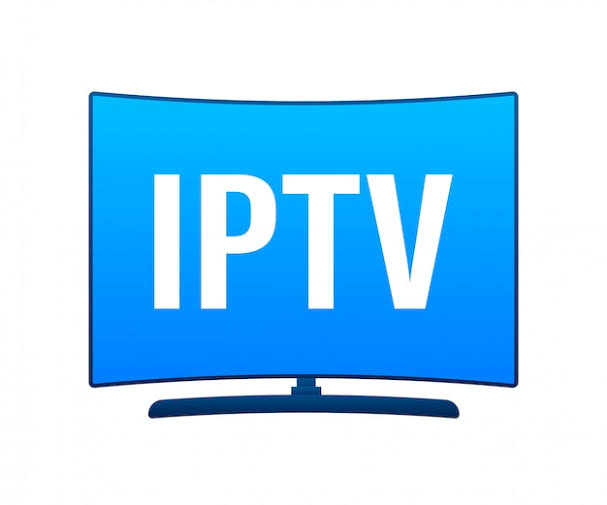Introduction
IPTV, or Internet Protocol Television, has become an increasingly popular way to watch TV and other video content in recent years. But what is the history of IPTV, and how did it come to be such a significant part of our modern media landscape? In this article, we’ll explore the origins of IPTV and how it has evolved over time, from its early beginnings to its current status as a mainstream form of entertainment.
Note: NordicPrime offers you the best IPTV.
What is IPTV?
Before we delve into the history of IPTV, let’s first define what it is. Simply put, IPTV is a way of delivering television and other video content over the internet, as opposed to traditional cable or satellite TV. Instead of receiving a signal through a cable or satellite dish, IPTV users access content through an internet connection.
Early beginnings
While IPTV has become more popular in recent years, its origins can be traced back to the 1990s. In the early days of the internet, some forward-thinking companies began experimenting with delivering TV content over the web. However, these early attempts were limited by the slow speeds of dial-up internet connections and the limited capabilities of early web technologies.
The rise of broadband
It wasn’t until the widespread adoption of broadband internet in the early 2000s that IPTV began to gain traction. With faster internet speeds, it became possible to deliver higher-quality video content over the web, and companies began to explore new ways of delivering TV over the internet.
The birth of IPTV services
The first IPTV services began to emerge in the early 2000s. These services, such as Akimbo and Joost, allowed users to access TV content over the internet, often through a dedicated set-top box or software application. However, these early services were limited in terms of the amount of content available and the quality of the video streams.
The impact of YouTube
The launch of YouTube in 2005 was a game-changer for online video, and it also had an impact on the development of IPTV. YouTube demonstrated that there was a massive appetite for online video content, and it inspired many companies to explore new ways of delivering video over the internet.
The growth of streaming services
In the years that followed, streaming services such as Netflix and Hulu began to emerge, offering users access to a vast library of TV shows and movies for a monthly subscription fee. These services represented a major shift in the way we consume TV content, and they paved the way for the mainstream adoption of IPTV.
The evolution of IPTV technology
As IPTV has grown in popularity, the technology behind it has evolved rapidly. Today, IPTV services use advanced encoding and delivery technologies to deliver high-quality video streams over the internet. They also often offer a range of features, such as on-demand content, time-shifted TV, and personalized recommendations.
The future of IPTV
So, what does the future hold for IPTV? It’s clear that the demand for online video content is only going to continue to grow, and IPTV is likely to become an increasingly important part of our media landscape. However, there are also challenges to be overcome, such as the need for faster and more reliable internet connections and the ongoing battle against piracy.
The impact on traditional TV
One of the biggest impacts of IPTV has been on traditional TV. As more and more people turn to online video services, traditional broadcasters have had to adapt or risk becoming obsolete. Many broadcasters have launched their own streaming services in response to the rise of IPTV, while others have begun to offer online access to their content alongside traditional broadcast channels.
The role of IPTV in the pandemic
The COVID-19 pandemic has had a significant impact on the entertainment industry, with many people forced to stay at home and seek out new forms of entertainment. IPTV has played a crucial role in this, with many people turning to online video services to fill the void left by cancelled events and closed venues.
The challenges of IPTV
While IPTV has many benefits, there are also challenges to be overcome. One of the biggest challenges is the need for faster and more reliable internet connections, particularly in areas with poor broadband infrastructure. There is also the ongoing battle against piracy, with many IPTV services being used to distribute illegal content.
The regulation of IPTV
As IPTV has become more popular, governments and regulators around the world have begun to take notice. There are concerns about the impact of IPTV on traditional broadcasters, as well as worries about the spread of illegal content. Many countries have introduced regulations to address these concerns, with some going as far as to ban the use of certain IPTV services.
The future of IPTV advertising
Advertising has always been an important part of television, and IPTV is no exception. However, the way that advertising is delivered over IPTV is likely to evolve in the coming years. With the rise of targeted advertising and the use of data to personalize ads, IPTV advertising is likely to become more sophisticated and effective.
The impact on the wider entertainment industry
Finally, it’s worth considering the wider impact of IPTV on the entertainment industry as a whole. The rise of online video services has led to a significant shift in the way that we consume TV content, and this is likely to have a knock-on effect on other areas of the entertainment industry. For example, the rise of IPTV may lead to changes in the way that movies are released and marketed, as studios seek to reach audiences who are increasingly turning to online video services.
Conclusion
The history of IPTV is a fascinating story of innovation and evolution. From its early beginnings in the 1990s to its current status as a mainstream form of entertainment, IPTV has undergone significant changes and developments. While there are challenges to be overcome, it’s clear that IPTV is here to stay, and it will continue to shape the way we consume TV and other video content in the years to come.




